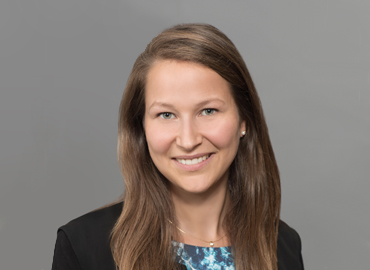It’s in times of crisis — like the current COVID-19 pandemic — that we can see the impact of inequality more than ever.
And why inequality continues to be one of the most pressing societal issues.
It’s an issue Clémentine Van Effenterre, an assistant professor in the Faculty of Arts & Science’s Department of Economics, is tackling head-on with her new podcast InequaliTalks.
Launched earlier this summer, Van Effenterre explores some of the most pressing topics when it comes to inequality — in an accessible way.
“I wanted to improve access to the ‘making’ of economic research and show how evidence is produced — an approach often neglected by other generalist podcasts on economics,” says Van Effenterre.

“It can be challenging for economists to convey the basic intuition behind their methods, but I think it sheds light on how they approach a particular question, what their assumptions are, et cetera.”
Speaking to economists from across the globe, Van Effenterre delves into issues like income inequality during COVID-19, the pandemic’s impact on globalization, inequality in the Middle East and the role of politicians — all in 20-minute bites.
And while Van Effenterre says the topic of inequality should be addressed by a range of disciplines across the social sciences and humanities, economics plays a crucial role.
“Economics helps document the magnitude and the evolution of inequality levels,” says Van Effenterre. “Attention to data is critical and teams of researchers across the world are working to improve the quality of the data we use.
“Economic analysis has the specificity to rely on what we call causal inference methods: using empirical methods to disentangle cause and effects. This approach is particularly relevant to guide policies to reduce inequality.”
Part of my goal with InequaliTalks was to highlight the work of a diverse group of young economists working on topics related to economic inequality. As a result, it contributes to increasing diversity in the economics profession.
Van Effenterre says she started the podcast during the COVID-19 pandemic as a way to highlight some of the innovative economic research on inequality happening worldwide and to help contribute to the best policy responses.
But she also wanted to showcase emerging young voices in her field.
“Part of my goal with InequaliTalks was to highlight the work of a diverse group of young economists working on topics related to economic inequality,” says Van Effenterre. “As a result, it contributes to increasing diversity in the economics profession.”
So far in this season, Van Effenterre has spoken with incoming Arts & Science faculty member Michael Stepner; Alessandro Sforza, an assistant professor of economics at the University of Bologna; Lydia Assouad, a PhD student at the Paris School of Economics; and Asad Liaqat, a PhD candidate in public policy at Harvard University.
Beyond sharing their research with listeners, Van Effenterre also looks to her guests for book or movie recommendations that changed the way they think about economics — and could change listeners minds too.
Responses have ranged from the first season of the podcast Threshold, to Italian author Alberto Angela’s The Reach of Rome: A Journey Through the Lands of the Ancient Empire, Following a Coin to the movie Capernaum by Lebanese director Nadine Labaki and Katherine Boo’s book Behind the Beautiful Forevers: Life, Death, and Hope in a Mumbai Undercity.
Her own answer? 2020 Best Picture Oscar winner Parasite, directed by Bong Joon Ho.
“Parasite tackles key questions that we study in economics: the decline in social mobility, the economic dependency between rich and poor households and the role of the education system in shaping the unequal distribution of resources and opportunities,” says Van Effenterre.
“It is rare to see a movie taking on these rather serious questions become a worldwide hit.”
As for what Van Effenterre hopes listeners take away from the InequaliTalks series, she says she hopes it sparks their curiosity and that listeners develop a critical approach to the data and methods used by economists.
For now, Van Effenterre will continue exploring inequality with upcoming episodes taking on gender discrimination in the medical profession, the impact of minimum wage on racial inequality, global land inequality and more.
“There are endless ways to tackle this issue.”

